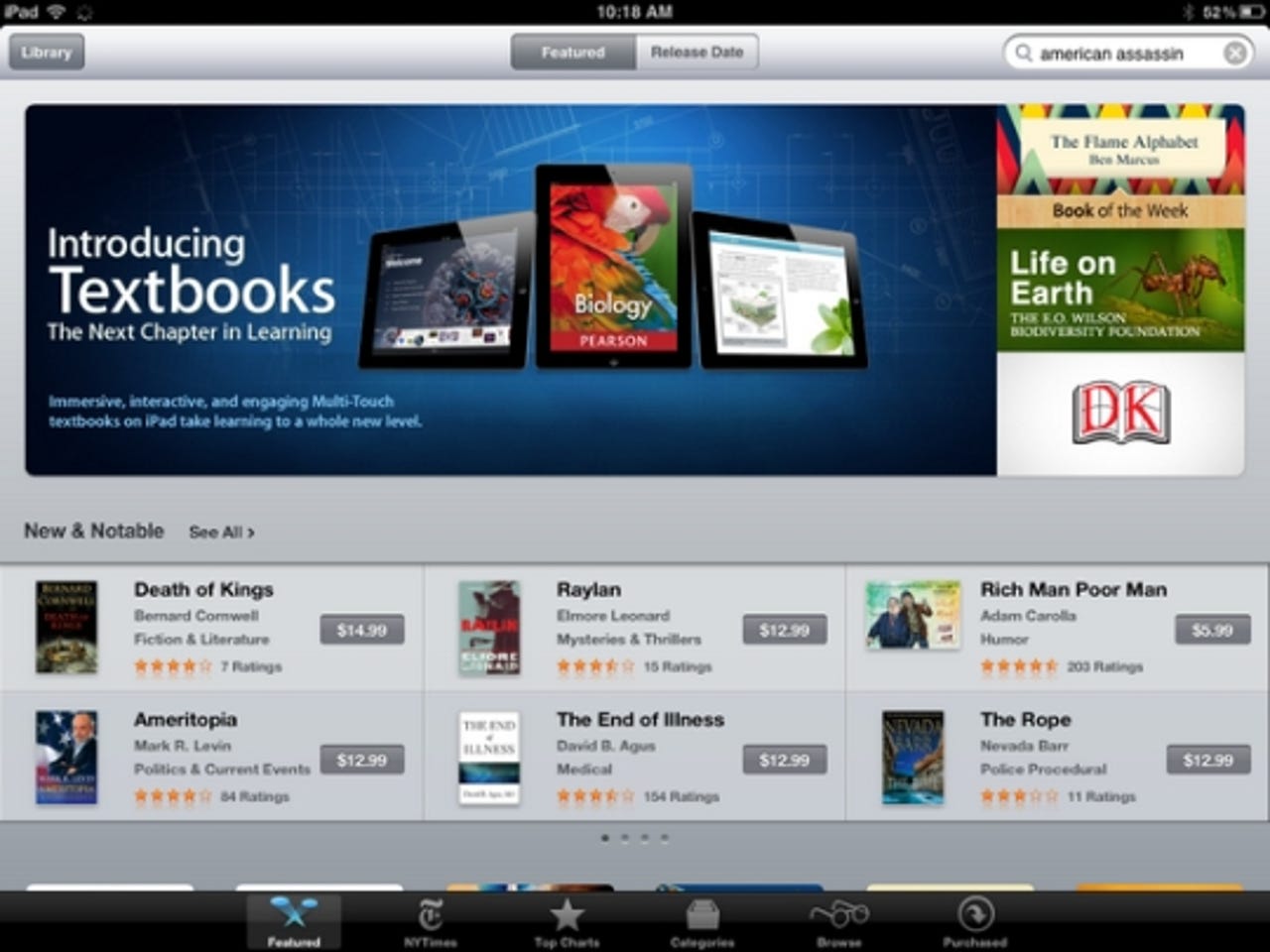Apple's iBooks Textbooks initiative is a welcome and natural progression

It seems there is quite a bit of skepticism and controversy surrounding the new Apple iBooks 2 and Textbooks application and service. Most is centered on the iPad requirement and the control of output from the iBook Author tool. I agree with some of these arguments, but also believe the iBooks 2/Textbooks announcement from yesterday is just one part of the story we will hear from Apple in the near future.

iPad is best choice
All of the tablet sales data shows that there is currently no real competition to the Apple iPad in the tablet form factor so why is there even any controversy about this service, from Apple, being tied just to the iPad? The iPad just works and yet is also extremely powerful. You can go days without charging, use it without worrying about lockups, freezes, or other instability, and experience an enjoyable user interface. As James stated, it is an expensive device that could be broken by kids, but I have also seen kids go out of their way to keep their iPod touch devices safe too and can tell you it is unlikely they will treat an iPad just like a paper textbook.What other tablets or computer systems do you want to see this Apple Textbooks support appear in? A laptop with a keyboard doesn't come close to modeling a book experience and in most cases is a clunky system to use for a textbook alternative. It seems to me it would also be easier to copy and paste book content if these textbooks were on a Mac, which won't appeal to publishers who are nervous enough about going digital. Something like the Kindle Fire or Nook Tablet would be nice to use for such a project, but it seems to me that this is where Amazon fell down and gave away this potential market to Apple. Android tablets are not being readily adopted and do not offer the same experience as the iPad. I love using eInk for longer term ebook reading, but eInk is not even as good as paper textbooks and don't improve the textbook experience.
Maybe Apple will launch a new iPad model
Many of us who have smaller 7 inch form factor tablets know this form is more portable and it is easier to protect a smaller display. We may see Apple release a small form factor iPad with a more rugged design as they see how well this new Textbooks service does. The lowest cost iPad 2 is $500 and while I think that is reasonable to protect my daughters' backs it is still expensive for school districts to roll out across the entire educational system. I hope we see Apple launch a device in the $300 price range that is optimized for the educational market. We have seen Apple give large education discounts and carry products for the educational market in the past, which is part of the reason I started buying Apple products back in 1989 so maybe we will see them do this with the iPad as well.Content is not locked in
While I understand the concern about creating a book with the iBooks Author tool that Apple rejects, we can look at the apps they reject and have a good idea of what type of content will likely be rejected. I highly doubt that legitimate textbook material assembled into textbooks for students will be rejected while those focused on controversial topics may be rejected. You can also take that same content and publish it in other formats for other platforms, but if the iPad success is any indication of the future there really is no other competitive tablet to the iPad.I applaud Apple for stepping up to the plate to try to help out teachers, students, and publishers as they look to bring modern technology to the classroom. They are offering the Author tool for free and they should be able to get a piece of the pie for books sold through their store. If they take their traditional 30%, then publishers are still getting 70% of the profit which is much more than they get now with traditional paper publishing.
Related ZDNet articles
- Apple's mind-bogglingly greedy and evil license agreement
- Why iBooks will never come to Mac OS
- Apple education event: Winners and losers
- One thing may rock the Apple iPad for education scheme: Kids
- Apple's textbook plan's biggest flaw is that it's tied to the iPad
- Apple iBooks 2 with Textbooks may reduce back pain and improve student health